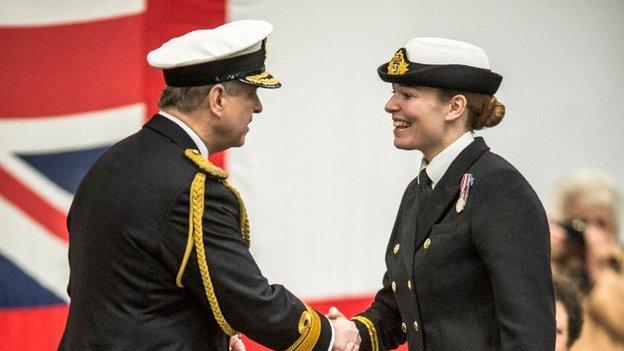High flyers: Why aren't there more women airline pilots?
- Published
In 2015, BA Senior First Officer Helen Macnamara explained her career path
"It's a career I absolutely love. There's nothing else I'd rather do for my job."
Helen McNamara is a senior first officer flying the Boeing 767 for British Airways. She's been flying for 14 years.
But despite it being nearly five decades since the first woman became a commercial pilot, she's still very much in a minority.
Globally only about 3% of pilots are women - that's about 4,000 out of 130,000 pilots worldwide.
British Airways employs 3,500 pilots, but only 200 are female - and that's more than any other UK airline.
It would like to see more women apply for its training scheme.
And while the number of female applicants increases slightly with every intake, it's still low - and nobody's really clear why.
'Man's job'
Helen says it was only as she grew older she began to think of flying as a career.
"I didn't really know anyone who was a pilot, and it wasn't something I saw as a potential option for a career.
"It wasn't something I was discouraged to do, but I wasn't actively encouraged."
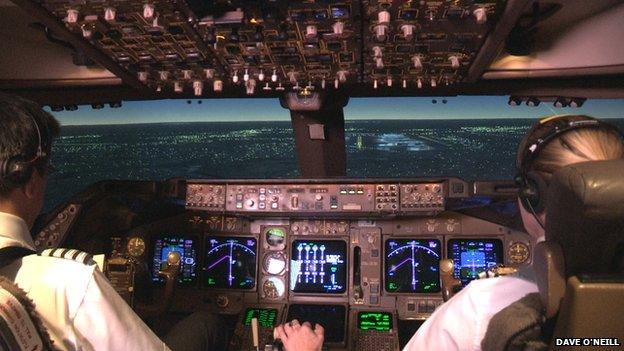
The BA training scheme is open to people between the ages of 18 and 55.
A recent poll for the airline showed women said they were put off flying as a career because of a lack of visible role models - and because they were told it was a man's job.
In the poll, 20% of those questioned said when growing up, men were pilots on TV and in films, while 20% said they thought women could only be cabin crew. And 13% of the respondents said they had never been on a plane flown by a woman.
Helen says she goes into schools and attends recruitment fairs to talk to young women.
She studied physics at university, but says being brilliant at science or maths is not a necessity for the job.
"On my training course there were people who came from law, there were people who came from architecture, so it's not just a pure science background required," she says.
Much of a pilot's training is carried out in state-of-the-art simulators. It takes 18 months to qualify.
Captain Ian Pringle is one of the BA training team. He says it truly is a non-gender specific job.
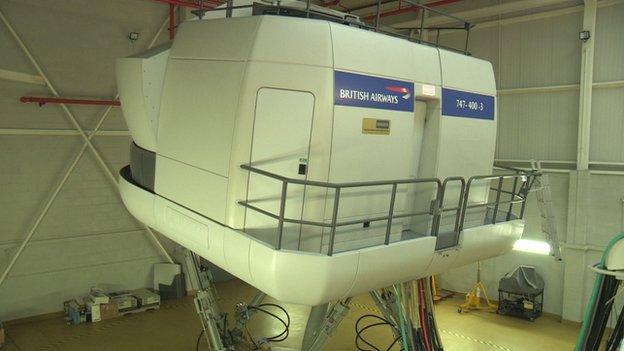
British Airways pilots undergo 18 months of training, including using flight simulators
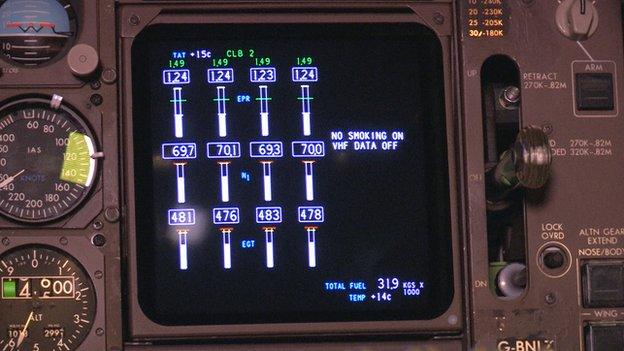
Simulators are an exact replica of the airliner the pilot is training to fly
"It doesn't matter if you're male or female," he says.
"We are looking for the people with the aptitude, passion and dedication for the role."
Of course, many women do work in the aviation industry but the British Airline Pilots Association (Balpa) is also keen to see more among its number.
Jim McAuslan, the union's general secretary, says it's "frustrating" that there are still comparatively few.
He believes there is definitely a lack of female role models.
Dynamic career
"Our experience is that people at recruitment fairs are there because they've got a dream," he says.
"85% are there because they have always dreamed of being a pilot. We want women to have that dream as well.
"It is a career that is achievable for everyone. So have the dream."
Helen says she would urge any woman to think about becoming a pilot.
"The variety of people you work with, the varied places you go to and the different challenges each day make it such a dynamic career, I couldn't recommend it highly enough," she says.
And she says she's never had a bad experience - either with passengers or fellow crew.
"In the terminal when we meet passengers they are always extremely positive, and onboard the aeroplane I've always felt a welcome part of the team," she says.
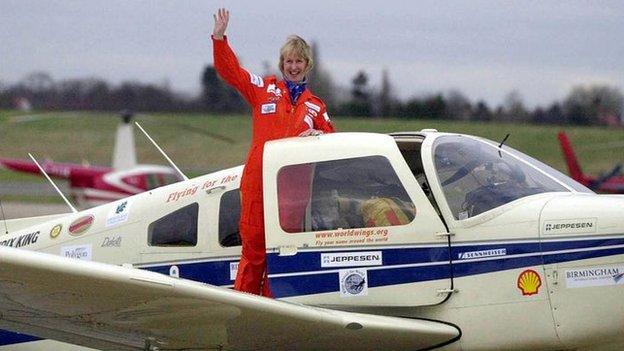
Polly Vacher became the first woman to fly solo around the world in the smallest aircraft via Australia and the Pacific in 2001 - but the British Airline Pilots Association would like to see more female role models
So although numbers are low, attitudes have moved on from the 1960s, when the first female commercial pilot - Yvonne Pope Sintes - began work.
Yvonne says at the beginning of her career she did face some negativity.
"Initially when I first started, one of the pilots said he would resign if a woman joined, but fortunately he didn't," she says.
"And I then I did find afterwards that the experienced pilots were happy to accept me and help me".
Yvonne agrees that women need to be enthused by the idea of flying when they are young.
"You've got to have a real vocation for flying and maybe young women don't realise what possibilities there are nowadays. I hope that many more will go into it as a job."
She also believes "having a dream" from a young age is key. She says she "fell in love with flying" when she was only eight years old.
- Published15 January 2014
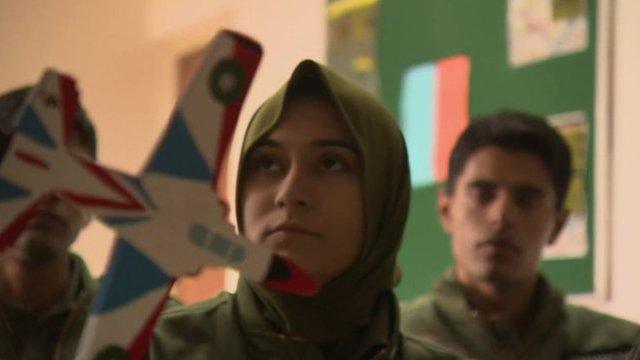
- Published18 July 2011
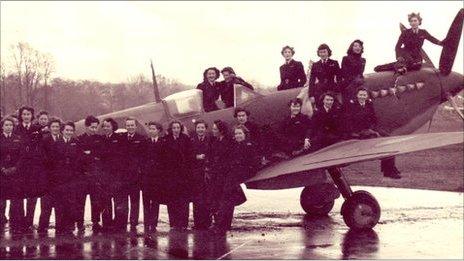
- Published29 January 2015
